Archishop Cushley today celebrated a Requiem Mass at St Mary's Cathedral, Edinburgh, in memory of Pope Francis.
Kate Forbes, the Deputy First Minister, was in attendance to represent the Scottish Government and read the first reading (Acts 10:34-43)
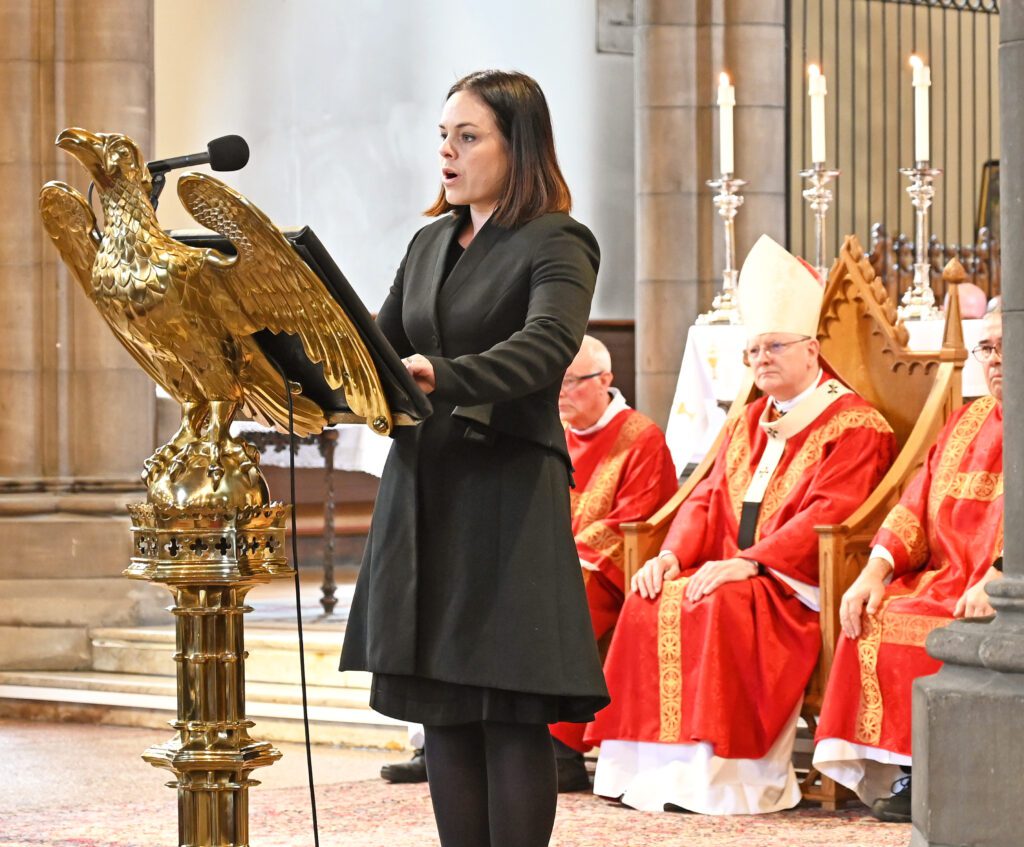
Also attending was Scottish Labour Leader Anas Sarwar and Annie Wells of the Scottish Conservatives.
***
Homily of Archbishop Leo Cushley of St Andrews & Edinburgh, Funeral Mass for the repose of the soul of His late Holiness Pope Francis, St Mary’s Metropolitan Cathedral, Edinburgh, 28 April 2025.
My dear friends,
Today we gather to thank almighty God for the graces bestowed on us through Pope Francis’s ministry as Bishop of Rome, and to commend him to the Lord’s mercy.
On behalf of the clergy and people of this archdiocese, I’d like to thank all of you for joining us here today, especially the civil and religious leaders of our nation and our capital city, led by our Deputy First Minster and our Lord Provost.
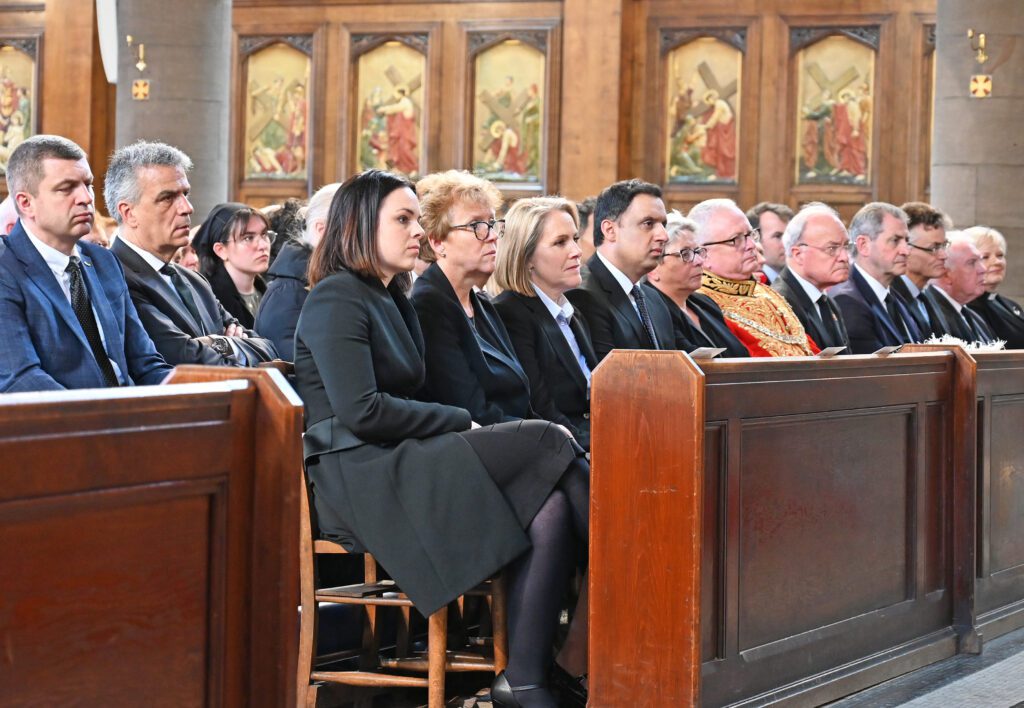
Thank you for many kind expressions of condolence and for mourning with us on this sad occasion.
Kind, open, no-nonsense
In many ways, Jorge Bergoglio was a first: he was the first Jesuit pope, the first American pope, and the first pope from the global south. From his very first day in office, he struck me again and again as someone who was kind, open and no nonsense.
He was simple and essential, he was personal and pastoral. He was deciso, the nearest English to it is “decisive”, but with a dash of determination too: he was listening, but he was also someone who knew his own mind.
He usually did all this with a smile, and sometimes even while pulling your leg.
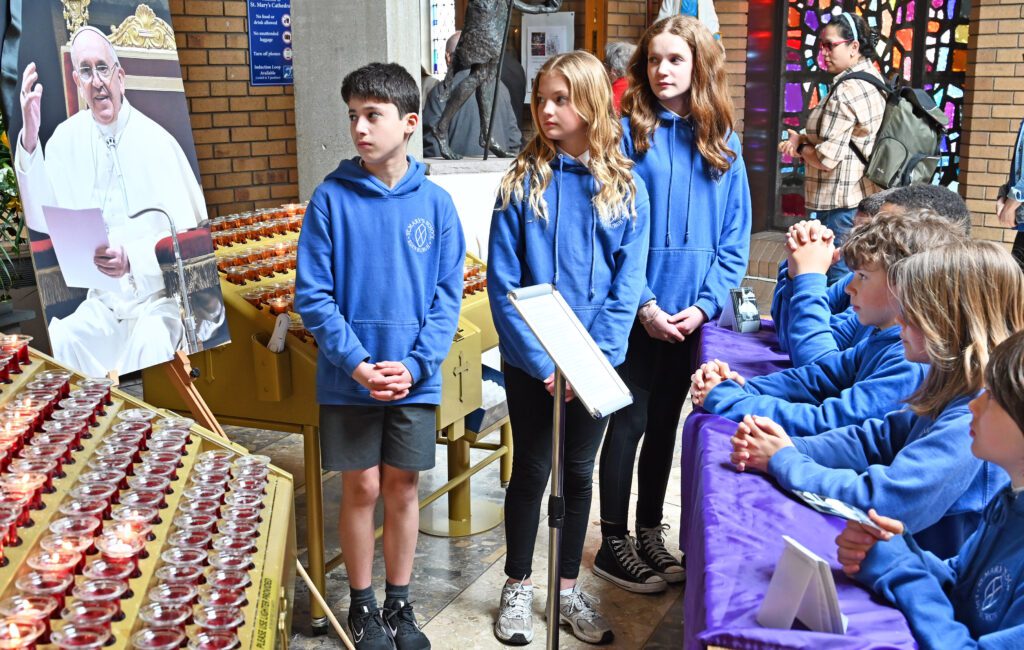
It's fairly obvious now, but Francis brought who he was to the great office of pope: he was Argentinian, but with a sprinkling of an Italian background.
His family were poor immigrants to a strange country; he was a Jesuit, trained in Ignatian prayer and discernment; when he became a bishop, it was to serve for twenty years the people of the sprawling city of Buenos Aires, some of them very poor, until he went to Rome in 2013 and was elected pope.
He was evidently very close to his people and was committed to them; yet after being elected pope he never returned to Argentina, perhaps because, a little like St Paul, he loved his friends from home, but he was also committed to the mission before him, not just the one behind him.
Pope Francis had many human gifts, but his experience had hardly prepared him for a truly international leadership. And the papacy isn’t just a tiny remnant of an Italian principality on the Tiber.
The Pope is a head of state with a long reach, as was in full view at his funeral on Saturday.
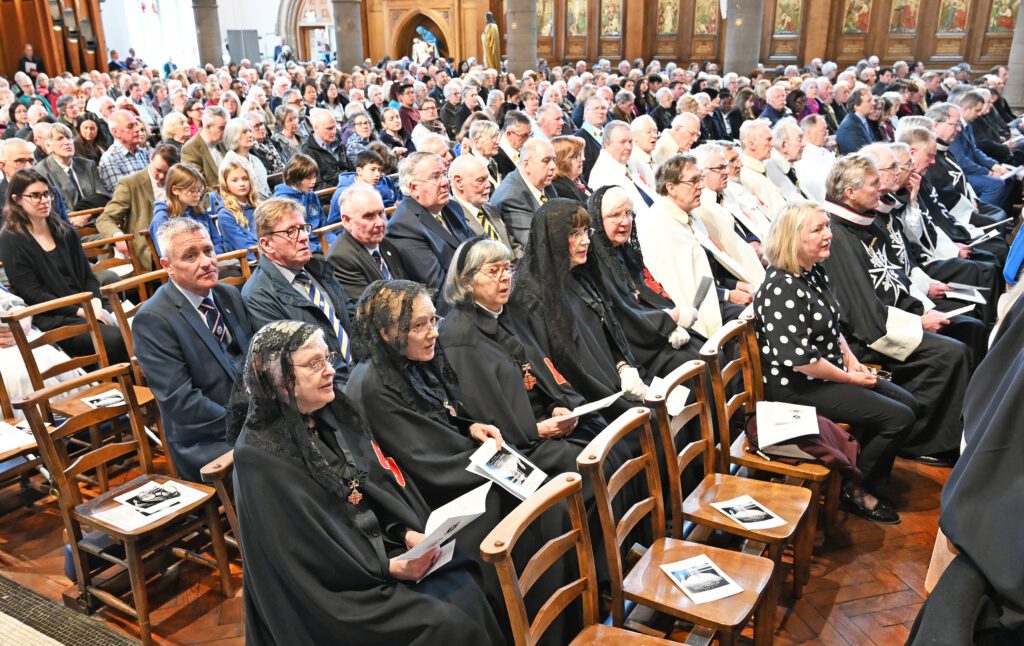
Looking to the pope is a world-wide Church of a billion people.
But this is based, first and foremost, on being the Bishop of Rome.
Pope Francis, with all his pastoral experience, naturally preferred first to be a bishop and a pastor of souls, but he also learned how to use the reach of the papacy to make his voice heard on subjects of international importance.
Guiding the Church
Francis endeavoured to reform the Vatican’s bureaucracy, to set its finances in better order, and to find a way to guide the Church through the other great issues of our days. But I’m not sure that the Holy See, or its reform, was the primary focus of his engagement with his new role as pope.
I think that he preferred to use the Holy See’s international presence to plea for peace, to draw attention to the plight of migrants, people caught up in war, people on the street, people on the margins.
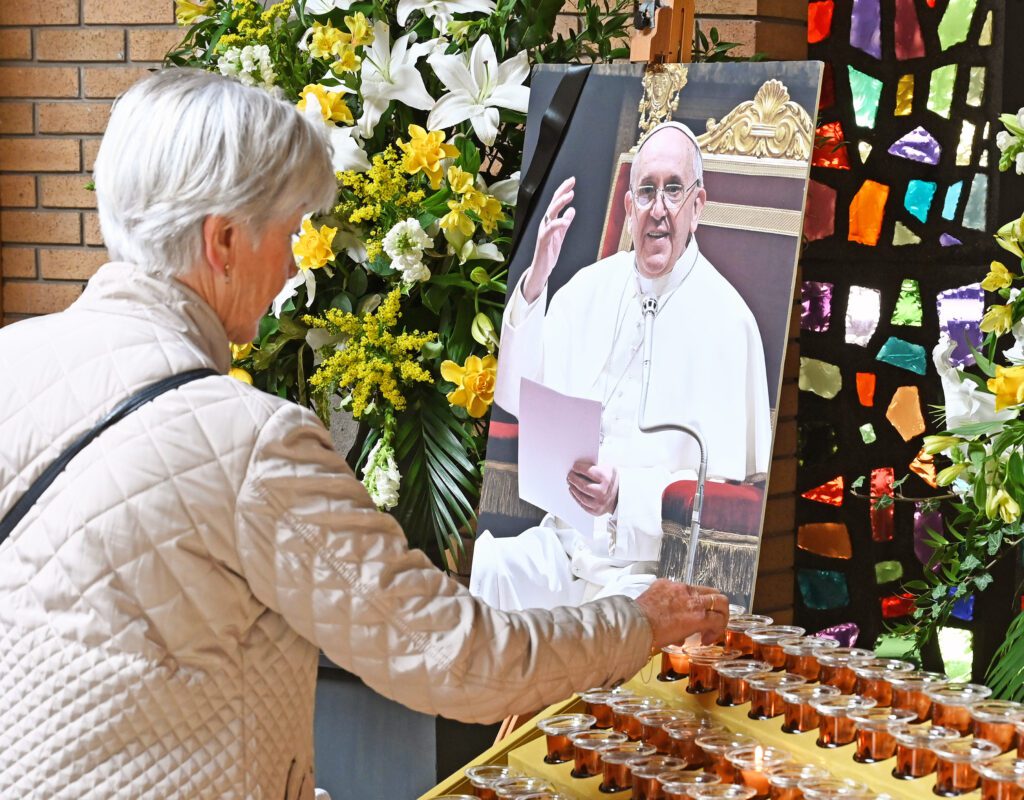
The pastoral heart of the former Archbishop of Buenos Aires always went out more to people, and less to institutions.
In exploring what synodality might mean in the Catholic Church, his attention was drawn above all to having us learn again to listen to each other.
He did everything he could, right up to his visit ten days ago to a Roman prison, to remind us that our God is a merciful God: he said, If we wish to be faithful disciples of Jesus of Nazareth, we must be open towards our fellow human beings, no matter who or what they are; we must accompany them with our time and patience, with our humility and energy.
In the Our Father, Christians undertake to forgive our brothers and sisters their trespasses, just as we pray that God will forgive us ours.
Nothing new in that per se; but it was Francis’s fresh emphasis on the mutuality of mercy that caught our attention.
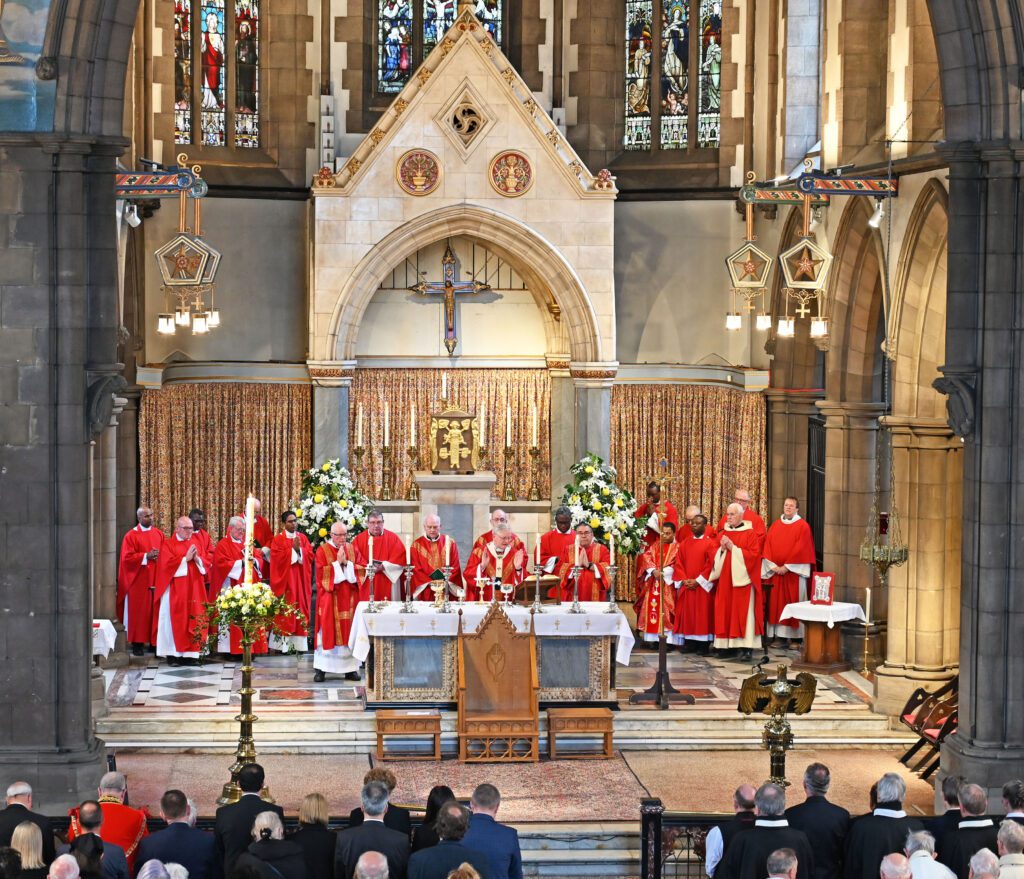
He had a special care for the earth, and with large and small gestures he called us back to being true stewards of God’s good creation, to be satisfied with less stuff, and to be content with what we already have.
I know that he was minded to accept the invitation to COP 26, and only ill health made him cancel, some ten days before, a trip he had intended to make to Edinburgh and Glasgow.
Service to God
Towards us clergy, as individuals, Francis was invariably friendly and welcoming.
That didn’t stop him, however, admonishing us as a group to avoid pitfalls such as clericalism. In this, I’ve sometimes compared him to a St Ignatius or a St Francis Xavier, urging clergy to be out among their people, rather than being stuck at home with their noses in their books.
We all know that our service to God doesn’t replace our duty to serve God’s people; but the Holy Father was right to remind us that both are equally part of our vocation, and to model our lives on the mystery of the Lord’s Cross.
The Scripture readings we heard today are those that Francis chose for his funeral on Saturday, and we are wearing red, the traditional colour for a pope’s funeral. The Gospel reading in particular is one that we can connect easily with him in a number of ways.
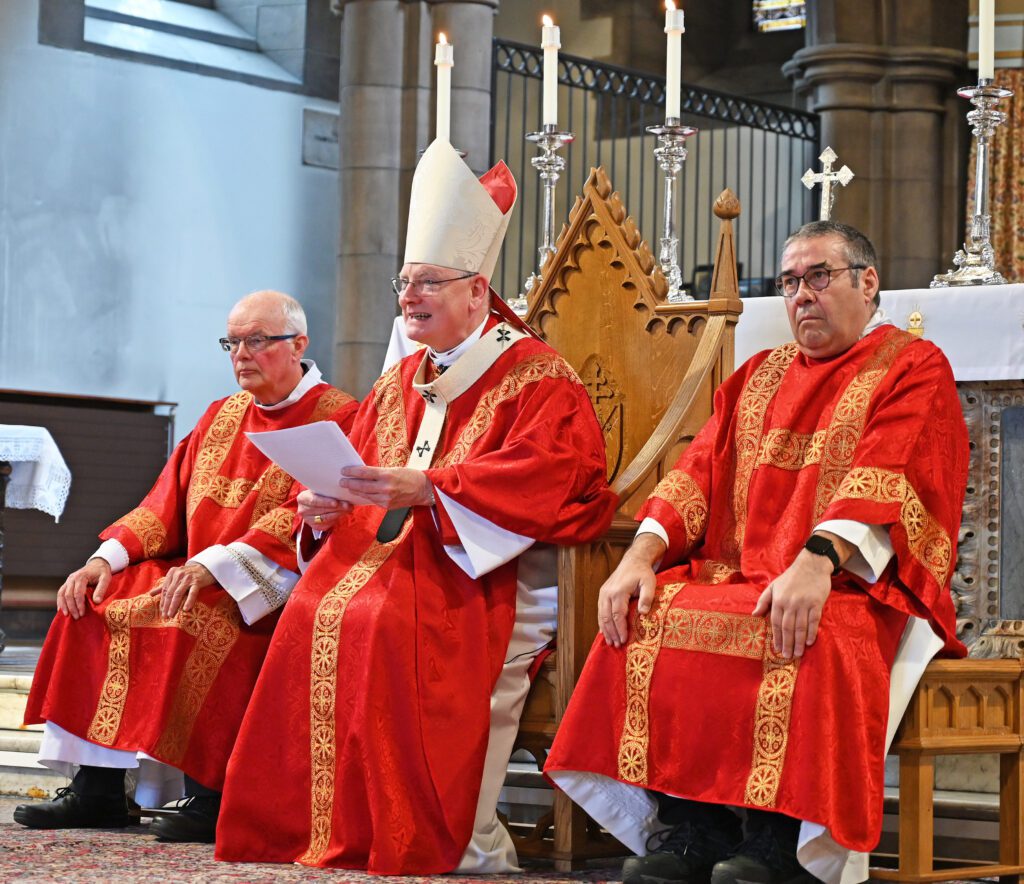
The story from St John is of the third time the risen Lord appears to the eleven. Peter, who has denied the Lord three times, is now invited to erase the memory of that, by affirming three times that he loves the Lord.
Even the fact that he dives out the boat and swims eagerly to the shore to meet Him speaks of his remaining affection for the Lord, in spite of letting Jesus down and running away like everyone else before the Crucifixion.
Jesus now gently asks him if he loves Him more than these others do. Three times, Peter replies, “Yes, Lord, I love you”, and the Lord says in return, “Feed my lambs”, and “Feed my sheep”. We can’t hear it in English, but in the Greek original, Peter famously replies “I love you” in a way that means, “You know I can’t love you as perfectly as you deserve, but I’ll love you as best I can”.
But Jesus accepts that: he accepts Peter, with all his imperfections, and confirms him in his task to lead and to care for Christ’s flock. That’s what Peter did. That’s what the popes endeavour to honour as Successors of Peter in the See of Rome. And in his turn, that’s what Pope Francis tried to do too, to lead by example to care for one another, especially the poorest and the weakest.
Justice & Mercy
Francis was interested in justice and in mercy. Our imperfect human law-making is an endeavour to balance these two things. Creating legislation and applying it are worthy and important tasks at the service of society.
Often difficult choices have to be made by legislators and magistrates, and we all appreciate what those who represent us in parliament and those who apply our laws must do on our behalf. Francis was deeply interested in both justice and mercy.
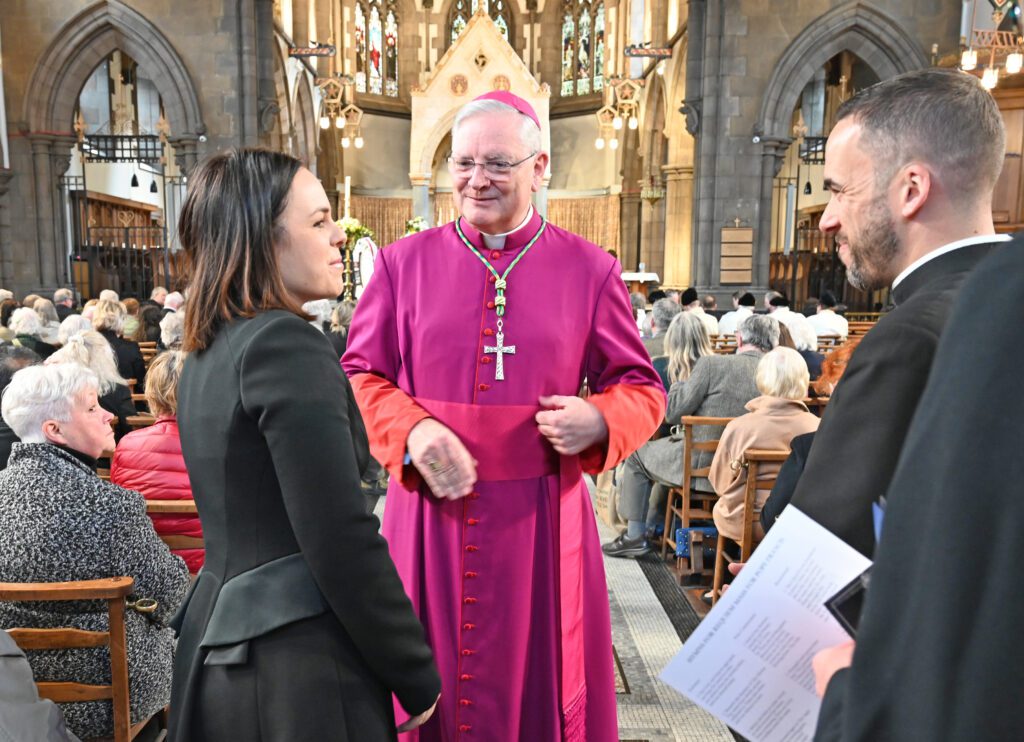
He urged us to find better ways to peace than through war; he urged a renewed sense of care for each other, especially the voiceless, and the excluded; above all, though, he brought a fresh focus on mercy, the mercy we owe each other, the mercy that is the glue of healthy relationships in a healthy society.
The world doesn’t always believe in mercy. But Pope Francis did, and with all his heart.
The memory of him as a man of mercy will surely endure for a long time to come.
Francis’s labours now over, may the Lord now welcome this merciful man into His peace, even as we give thanks for his example as a priest, as a leader, as a disciple of the Risen Lord.
May God be merciful to this merciful man. Amen.
